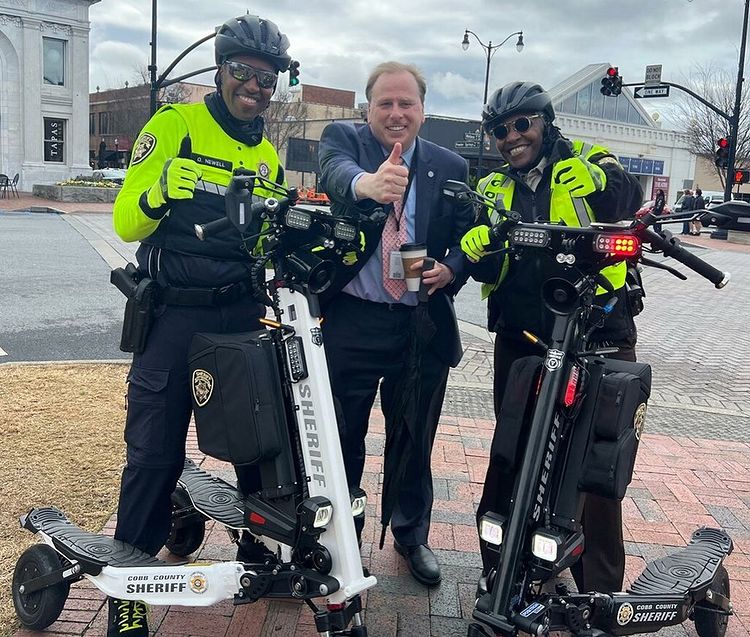However, traditional mobility methods are not without their limitations. Patrol cars, while indispensable for tasks like pursuing suspects and transporting equipment, can inadvertently reduce opportunities for face-to-face community engagement. Officers spending extended periods inside vehicles may miss vital opportunities to build trust and rapport with the public. Recognizing these challenges highlights the need for innovative solutions that can address both mobility demands and community interaction.
Innovative electric mobility solutions are reshaping the landscape of community policing, offering an alternative that bridges the gap between squad cars and foot patrols. One such solution is the Trikke Positron, a personal mobility device designed by Trikke Professional Mobility. This three-wheeled, all-electric vehicle is engineered for versatility, capable of navigating sidewalks, streets, parking garages, and even hallways. Its multi-terrain functionality and all-wheel drive system make it ideal for urban and crowded environments where traditional vehicles might struggle.
The Positron is more than just a mobility tool—it enhances tactical advantage and community engagement. With officers elevated on its platform, they gain better visibility over fences, cars, and crowds while maintaining a commanding yet approachable presence. Its silent operation and zero-emissions design align with environmentally friendly practices, and its compact, foldable build allows for easy storage and transport.

Real-life examples demonstrate the Positron’s value. For instance, police departments from California’s Bay Area Rapid Transit Police to the Wilmington Police Department in Wilmington, Delaware, adopted the device to enhance patrolling in dense urban areas and large public events, reporting improved response times and positive community feedback. These success stories underscore its practical benefits and potential to transform traditional policing methods.
The device offers a 35-mile range per charge, powered by an easily rechargeable battery, and its intuitive design ensures accessibility for officers of all skill levels. According to Trikke’s CEO, Gildo Beleski, advancements in battery technology and growing acceptance of electric vehicles have significantly improved the performance and range of the Positron, making it a practical solution for law enforcement.
Cost considerations also play a critical role in adopting such innovations. While the initial investment may seem high, the long-term savings from reduced fuel costs, lower maintenance, and increased operational efficiency make the Positron a cost-effective alternative to traditional patrol vehicles. By incorporating such tools, agencies can strengthen their ability to patrol efficiently while fostering trust with the communities they serve.
By adopting alternatives like the Trikke Positron, law enforcement agencies can achieve a balance between operational efficiency and community engagement. These innovations exemplify how technology can transform traditional policing methods, paving the way for a more agile, interactive, and sustainable future.


Recent Comments